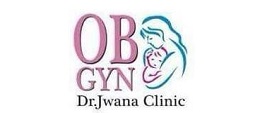All Departments
- PCOS Treatment
- STD Treatment
- Infertility Treatment
- Fibroid Treatment
- Endometriosis Treatment
- Ovarian Cyst Treatment
- Sexual Dysfunction
- Menopause Specialist
- Irregular Menstrual
- Laparoscopic Gynecologists
- Hysterectomy
- Urogynecologist
- Contraception
- Colposcopy
- AMH Testing
- O Shot
- G shot Treatment
- Vaginoplasty
- labiaplasty
- Clitoral Hoodectomy
- Vaginal Bleaching
- High-Risk Pregnancy
- Pregnancy Care
- Maternal Fetal Medicine
- Cesarean Delivery
- Painless Normal Delivery
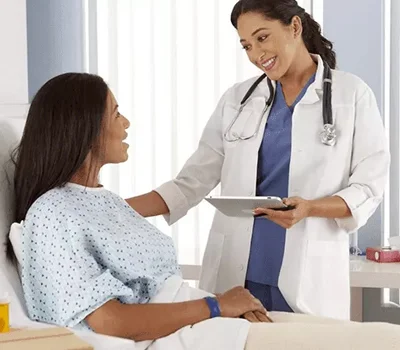
Endometriosis Treatment
Overview
Endometriosis is a prevalent gynaecological condition that affects women of reproductive age. It is a chronic disorder mostly found in women who are infertile (25% to 50%) and in women who have persistent pelvic discomfort (75% to 80%). Endometriosis is most commonly diagnosed in women over the age of 27, but it can develop in teens as well.
Some facts about endometriosis:
- Endometriosis can affect fertility and cause pain.
- It can be asymptomatic.
- This outer growth of tissues can irritate structures or organs that it touches.
- Endometrial tissue is typically detected by introducing a thin viewing
- Tube through a tiny incision near the navel (laparoscopy).
What is Endometriosis?
Endometriosis occurs when tissue that lines a woman’s uterus grows outside the uterus. This abnormal tissue growth can develop on the ovaries, fallopian tubes, uterine exterior surface, pelvic cavity lining, vagina, cervix, vulva, bladder, or rectum.
This tissue behaves similarly to typical uterine tissue throughout your period, breaking apart and bleeding toward the conclusion of the cycle. However, this blood has nowhere to go. Affected parts may become irritated or swollen. As a result, scar tissue and lesions may also develop.
Causes of Endometriosis
Although the real cause of Endometriosis is unclear, there are some theories:
- Small portions of the uterine lining (endometrium) shed during menstruation may travel backward down the fallopian tubes. These portions may flow back toward the ovaries into the abdominal cavity rather than flowing through the vagina.
- Endometrium cells (endometrial cells) can move to another region via blood or lymphatic arteries.
- Endometrial cells can develop from cells outside the uterus.
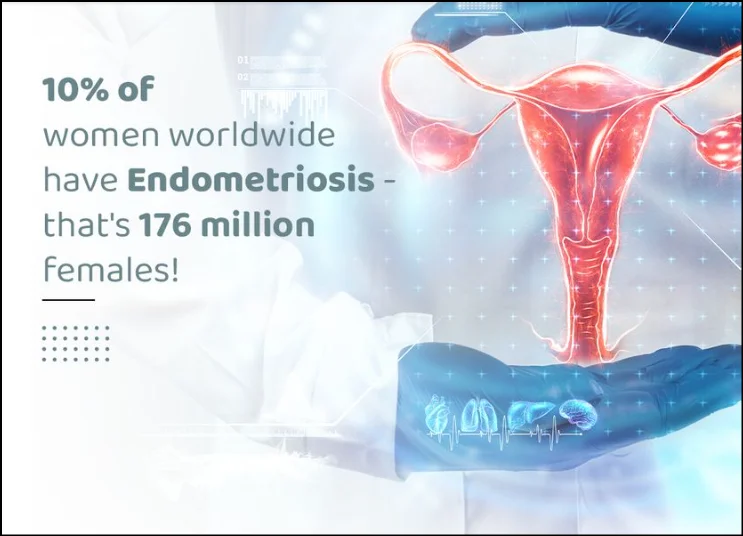
Symptoms of Endometriosis
- Lower abdomen and back pain during periods
- Acute menstrual cramps
- Discomfort while peeing or pooping
- Heavy or unusual bleeding during periods
- Pain during intercourse
- Diarrhea or Constipation
- Fatigue or feeling tired and exhausted all the time
- Trying but unable to conceive
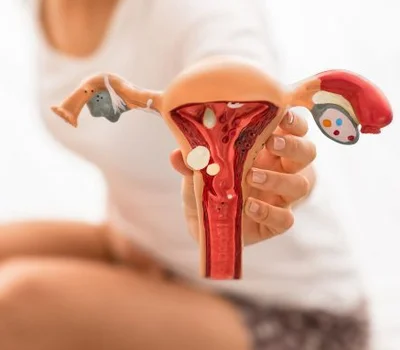
How does Endometriosis affect fertility?
Endometriosis can hinder pregnancy because of the following reasons:
- Endometrial tissues get wrapped around the ovaries and block the eggs from releasing
- These tissues block sperms’ way to the fallopian tube
- Endometriosis can stop a fertilized egg from sliding down the fallopian tube towards the uterus.
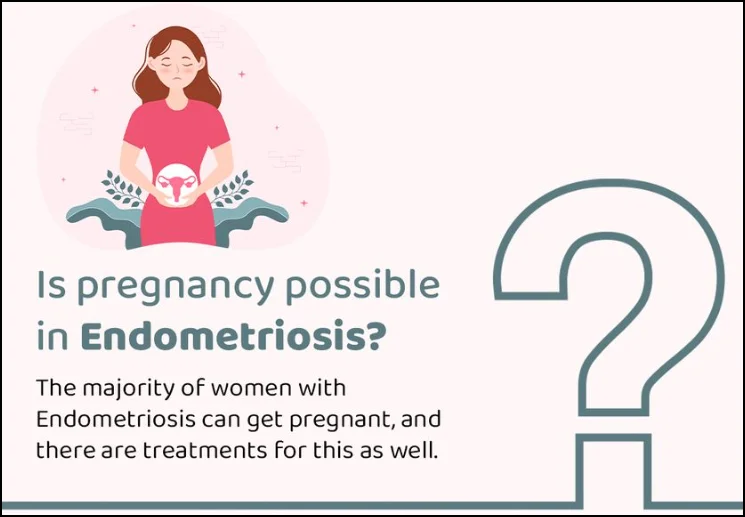
Endometriosis Treatment
Although endometriosis doesn’t have a definite cure, medication and surgery are the two best lines of treatment. It is recommended that you consult our gynecologist and seek his expert advice to see which one works out best for you.
Pain Medication – Non-steroidal anti-inflammatory drugs (NSAIDs) may be prescribed to relieve the pain.
Hormonal Therapy – Hormones like birth control pills, Gonadotropin, Progestin-only contraceptives, and Danazol help control inflammation, cyst formation and scarring.
Surgery – Surgery can aid maximum removal of affected tissues elevating your chances of getting pregnant. The procedure could be a laparoscopic or standard surgery. In some extreme cases, a hysterectomy might be required to remove your ovaries, cervix or uterus.
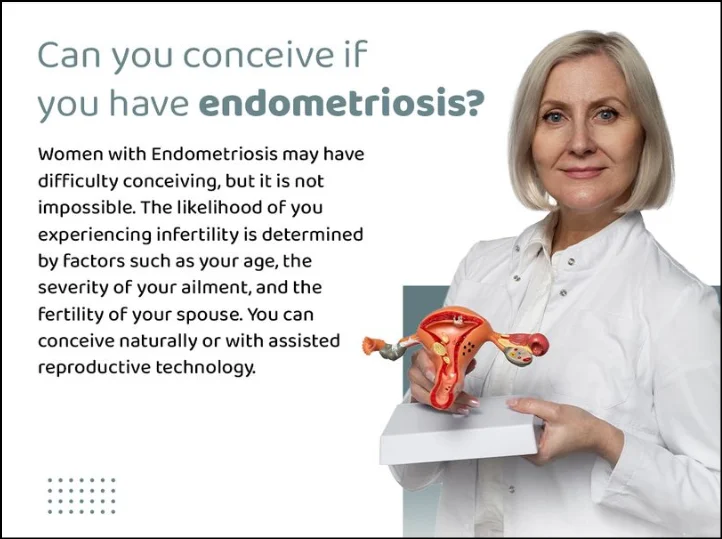
Lifestyle changes
Eat healthily – Lower your diet on meat and include more fruits and vegetables in your meals. Avoid alcohol and caffeine.
Exercise regularly – Exercise stimulates your heart to pump blood to all of your organs. It improves circulation and promotes the entire system’s transfer of nutrients and oxygen.
